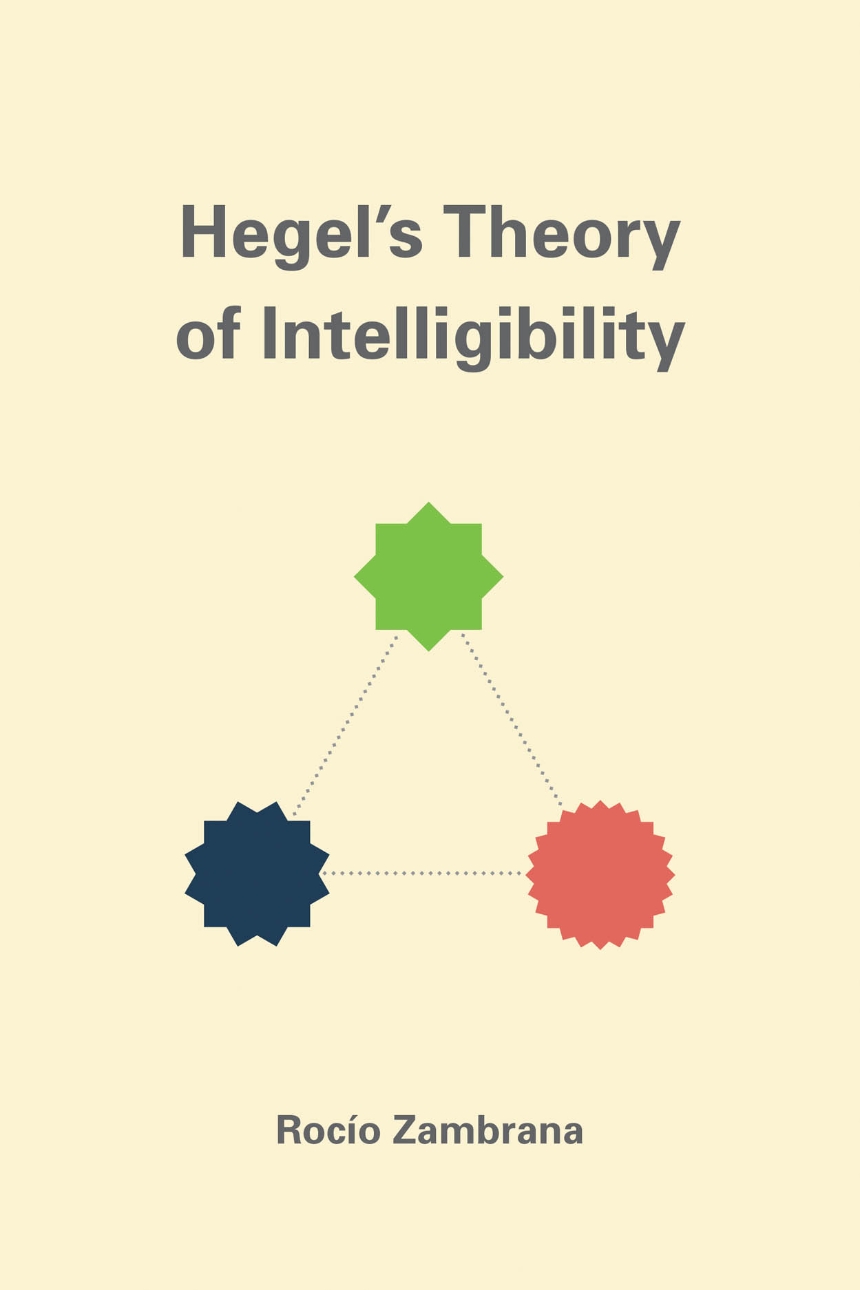Hegel’s Theory of Intelligibility
Hegel’s Theory of Intelligibility picks up on recent revisionist readings of Hegel to offer a productive new interpretation of his notoriously difficult work, the Science of Logic. Rocío Zambrana transforms the revisionist tradition by distilling the theory of normativity that Hegel elaborates in the Science of Logic within the context of his signature treatment of negativity, unveiling how both features of his system of thought operate on his theory of intelligibility.
Zambrana clarifies crucial features of Hegel’s theory of normativity previously thought to be absent from the argument of the Science of Logic—what she calls normative precariousness and normative ambivalence. She shows that Hegel’s theory of determinacy views intelligibility as both precarious, the result of practices and institutions that gain and lose authority throughout history, and ambivalent, accommodating opposite meanings and valences even when enjoying normative authority. In this way, Zambrana shows that the Science of Logic provides the philosophical justification for the necessary historicity of intelligibility. Intervening in several recent developments in the study of Kant, Hegel, and German Idealism more broadly, this book provides a productive new understanding of the value of Hegel’s systematic ambitions.
Zambrana clarifies crucial features of Hegel’s theory of normativity previously thought to be absent from the argument of the Science of Logic—what she calls normative precariousness and normative ambivalence. She shows that Hegel’s theory of determinacy views intelligibility as both precarious, the result of practices and institutions that gain and lose authority throughout history, and ambivalent, accommodating opposite meanings and valences even when enjoying normative authority. In this way, Zambrana shows that the Science of Logic provides the philosophical justification for the necessary historicity of intelligibility. Intervening in several recent developments in the study of Kant, Hegel, and German Idealism more broadly, this book provides a productive new understanding of the value of Hegel’s systematic ambitions.
Reviews
Table of Contents
Acknowledgments
Abbreviations
Introduction: Hegel’s Modernism
Part 1 Hegel’s Logic Of Actualization
1 Synthesis: Kant
2 Positing: Fichte
3 Actualization: Hegel
Part 2 Hegel’s Critique of Reflection
4 Ideality
5 Actuality
Part 3 Hegel’s Idealism
6 Form and Content
7 Idea
Conclusion: Philosophy’s Work
Notes
Index
Abbreviations
Introduction: Hegel’s Modernism
Part 1 Hegel’s Logic Of Actualization
1 Synthesis: Kant
2 Positing: Fichte
3 Actualization: Hegel
Part 2 Hegel’s Critique of Reflection
4 Ideality
5 Actuality
Part 3 Hegel’s Idealism
6 Form and Content
7 Idea
Conclusion: Philosophy’s Work
Notes
Index
